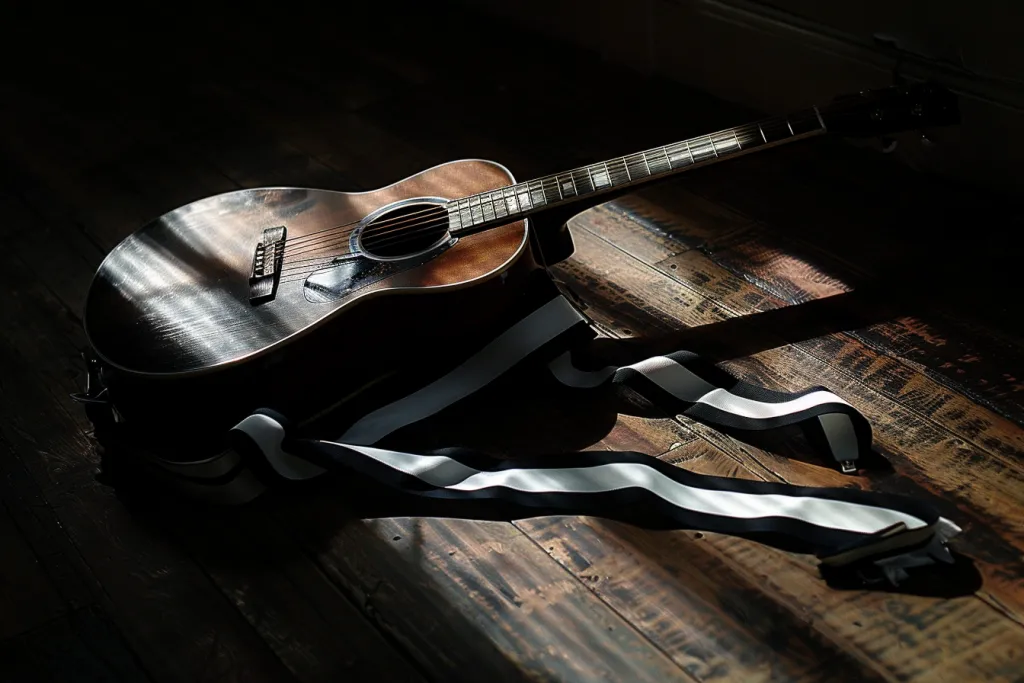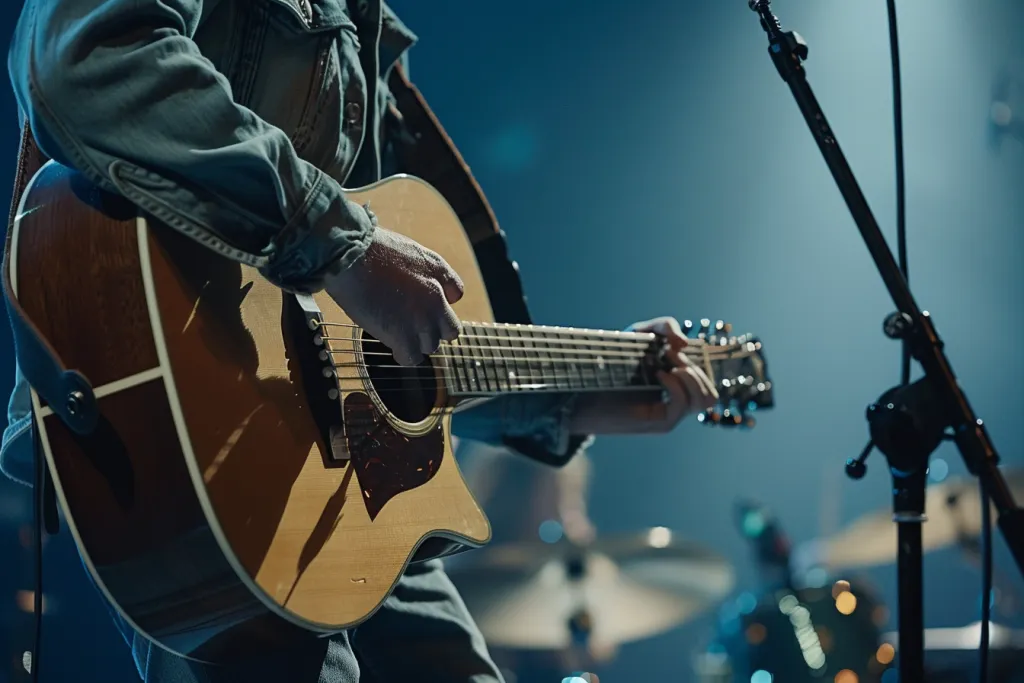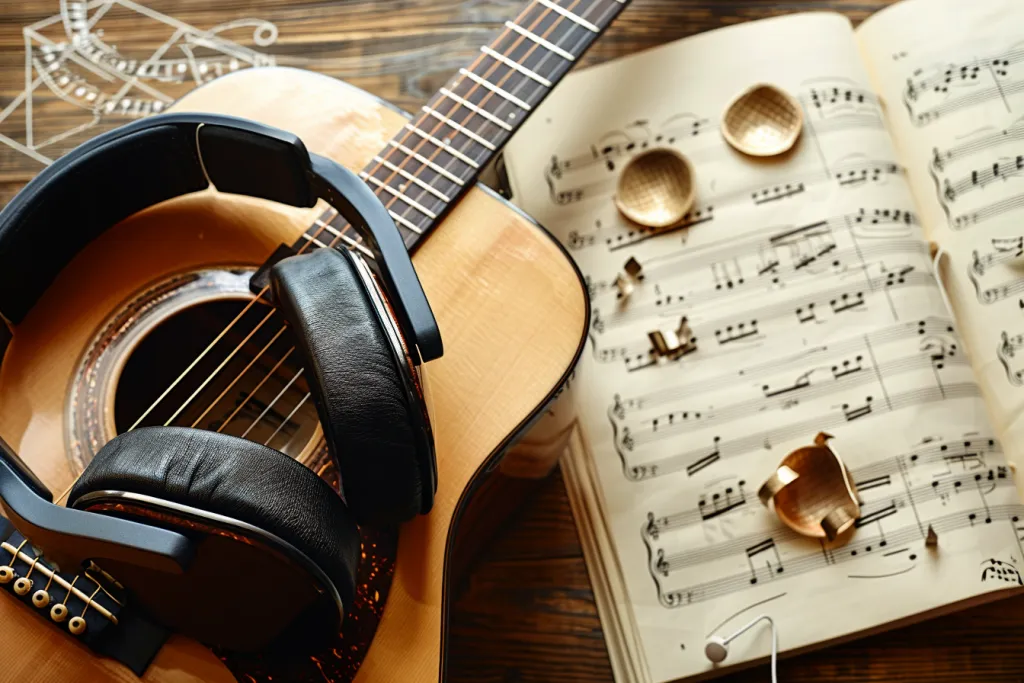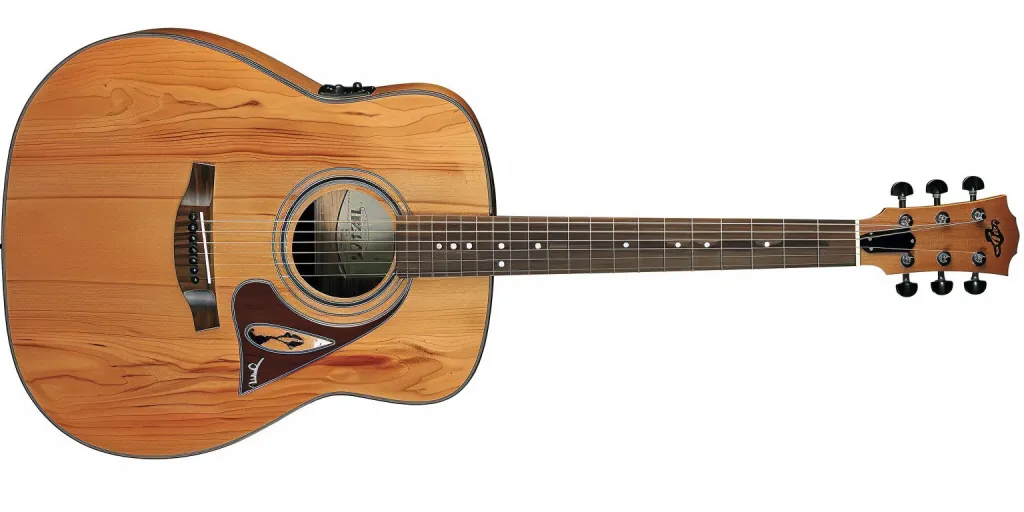The guitar, with its melodious strings and timeless appeal, stands as a cornerstone in the world of music. This guide delves deep into the essence of guitars, exploring their functionality, advantages, and considerations for both aspiring and seasoned musicians. Whether you’re strumming the first chord or refining your virtuosic repertoire, understanding the nuances of this beloved instrument can elevate your musical journey.
Table of Contents:
– What is a guitar
– How does a guitar work
– Benefits and drawbacks of a guitar
– How to choose a guitar
– How to use a guitar
What is a guitar:

A guitar is a stringed musical instrument, traditionally crafted from wood, with a history that spans centuries and cultures. It typically has six strings, though variations with more or fewer strings exist. Guitars are divided into two main categories: acoustic and electric. Acoustic guitars produce sound through the vibration of strings transmitted to the air via the guitar’s body, while electric guitars rely on electronic amplification to produce sound. The versatility and expressive range of the guitar have made it an essential instrument across genres, from classical and jazz to rock and pop.
How does a guitar work:

The magic of a guitar’s sound lies in the vibration of its strings. When a string is plucked, it vibrates at a specific frequency, creating a sound wave. In acoustic guitars, these vibrations are amplified by the body of the guitar, which acts as a resonating chamber. The shape and materials of the guitar influence the tone and volume of the sound produced. Electric guitars, on the other hand, use pickups to convert string vibrations into electrical signals, which are then amplified. The ability to modify this electrical signal with effects pedals or amplifiers allows electric guitars to produce a wide range of sounds.
Benefits and drawbacks of a guitar:

Guitars offer a unique blend of versatility, portability, and expressive capability. They can be played solo or in ensemble settings, and their wide range of sounds and styles makes them suitable for many genres of music. Learning to play the guitar can also enhance cognitive skills, improve coordination, and provide a therapeutic outlet for creativity and expression. However, mastering the guitar requires time, patience, and practice. The initial learning curve can be steep for some, and the physical demands of playing, such as finger strength and dexterity, can be challenging. Additionally, high-quality guitars can be expensive, and maintaining them requires care and occasional repairs.
How to choose a guitar:

Selecting the right guitar is a personal journey that depends on your musical style, budget, and preferences. Beginners might opt for an acoustic guitar due to its simplicity and the fact that it doesn’t require additional equipment like an amplifier. Those interested in rock, metal, or jazz might prefer an electric guitar for its versatility and the variety of sounds it can produce. Consider the guitar’s size, shape, and materials, as these factors affect playability and tone. Testing guitars in person is invaluable; how the instrument feels in your hands and responds to your touch is crucial. Lastly, research and seek advice from experienced players to find an instrument that aligns with your goals and budget.
How to use a guitar:

Playing the guitar involves learning chords, scales, and techniques to produce music. Beginners should start with basic chords and strumming patterns, gradually progressing to more complex chords and fingerpicking techniques. Regular practice is essential for developing muscle memory and improving dexterity. Utilizing resources such as online tutorials, guitar apps, or lessons with a teacher can accelerate learning. It’s also important to learn how to tune your guitar and understand basic maintenance to keep your instrument in good condition. Experimentation with different musical styles and techniques can help you find your unique voice as a guitarist.
Conclusion:
The guitar is a dynamic and expressive instrument that offers endless possibilities for musical exploration. Understanding its mechanics, advantages, and challenges can help you embark on or continue your musical journey with confidence. Choosing the right guitar involves careful consideration of your needs and preferences, while mastering the instrument requires dedication and practice. Whether you dream of serenading under the stars or electrifying a crowd with a shredding solo, the guitar is your gateway to a world of musical adventure.




